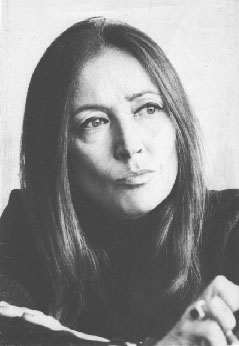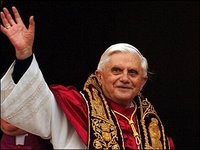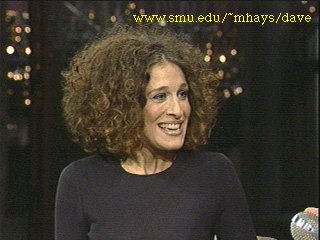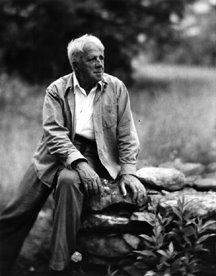
The Fallaci Code
Written by BRENDAN BERNHARD
Oriana Fallaci asks: Is Muslim immigration to Europe a conspiracy?
In The Force of Reason, the controversial Italian journalist and novelist Oriana Fallaci illuminates one of the central enigmas of our time. How did Europe become home to an estimated 20 million Muslims in a mere three decades?
How did Islam go from being a virtual non-factor to a religion that threatens the preeminence of Christianity on the Continent? How could the most popular name for a baby boy in Brussels possibly be Mohammed? Can it really be true that Muslims plan to build a mosque in London that will hold 40,000 people? That Dutch cities like Amsterdam and Rotterdam are close to having Muslim majorities? How was Europe, which was saved by the U.S. in World Wars I and II, and whose Muslim Bosnians were rescued by the U.S. as recently as 1999, transformed into a place in which, as Fallaci puts it, “if I hate Americans I go to Heaven and if I hate Muslims I go to Hell?”
In attempting to answer these questions, the author, who is stricken with cancer and has been hounded by death threats and charges of “Islamophobia” (she is due to go on trial in France this June), has combined history with episodes of riveting firsthand reportage into a form that reads like a real-life conspiracy thriller.
If The Force of Reason sells a lot of copies, which it almost certainly will (800,000 were sold in Italy alone, and the book is in the top 100 on Amazon ), it will be not only because of the heat generated by her topic, but also because Fallaci speaks for the ordinary reader. There is no one she despises more than the intellectual “cicadas,” as she calls them — “You see them every day on television; you read them every day in the newspapers” — who deny they are in the midst of a cultural, political and existential war with Islam, of which terrorism is the flashiest, but ultimately least important component. Nonetheless, to give the reader a taste of what Muslim conquest can be like, in her first chapter, Fallaci provides a brief tour of the religion’s bloodiest imperial episodes and later does an amusing job of debunking some of its more exaggerated claims to cultural and scientific greatness.
The book is also animated by a world-class journalist’s dismay that she could have missed the story of her lifetime for as long as she did. In the 1960s and ’70s, when she was a Vietnam War correspondent and a legendarily ferocious interviewer going mano a mano with the likes of Henry Kissinger and Yasser Arafat, Fallaci was simply too preoccupied with the events of the moment to notice that an entirely different narrative was rapidly taking shape — namely, the transformation of the West. There were clues, certainly. As when, in 1972, she interviewed the Palestinian terrorist George Habash, who told her (while a bodyguard aimed a submachine gun at her head) that the Palestinian problem was about far more than Israel. The Arab goal, Habash declared, was to wage war “against Europe and America” and to ensure that henceforth “there would be no peace for the West.” The Arabs, he informed her, would “advance step by step. Millimeter by millimeter. Year after year. Decade after decade. Determined, stubborn, patient. This is our strategy. A strategy that we shall expand throughout the whole planet.”Fallaci thought he was referring simply to terrorism.
Only later did she realize that he “also meant the cultural war, the demographic war, the religious war waged by stealing a country from its citizens … In short, the war waged through immigration, fertility, presumed pluriculturalism.” It is a low-level but deadly war that extends across the planet, as any newspaper reader can see.Fallaci is not the first person to ponder the rapidity of the ongoing Muslim transformation of Europe. As the English travel writer Jonathan Raban wrote in Arabia: A Journey Through the Labyrinth (1979), in the mid-1970s Arabs seemed to arrive in London almost overnight. “One day Arabs were a remote people … camping out in tents with camels … the next, they were neighbors.” On the streets of West London appeared black-clad women adorned with beaked masks that made them look “like hooded falcons.” Dressed for the desert (and walking precisely four steps ahead of the women), Arab men bestrode the sidewalks “like a crew of escaped film extras, their headdresses aswirl on the wind of exhaust fumes.”
Writers far better acquainted with the Muslim world than Raban have been equally perplexed. In 1995, the late American novelist Paul Bowles, a longtime resident of Tangier, told me that he could not understand why the French had allowed millions of North African Muslims into their country. Bowles had chosen to live among Muslims for most of his life, yet he obviously considered it highly unlikely that so many of them could be successfully integrated into a modern, secular European state.
Perhaps Bowles would have been interested in this passage from Fallaci’s book: “In 1974 [Algerian President] Houari Boumedienne, the man who ousted Ben Bella three years after Algerian independence, spoke before the General Assembly of the United Nations. And without circumlocutions he said: ‘One day millions of men will leave the southern hemisphere of this planet to burst into the northern one. But not as friends. Because they will burst in to conquer, and they will conquer by populating it with their children. Victory will come to us from the wombs of our women.’”
Such a bald statement of purpose by a nation’s president before an international forum seems incredible. Yet even in British journalist Adam LeBor’s A Heart Turned East (1997), a work of profound, almost supine sympathy for the plight of Muslim immigrants in the West, a London-based mullah is quoted as saying, “We cannot conquer these people with tanks and troops, so we have got to overcome them by force of numbers.” In fact, such remarks are commonplace. Just this week, Mullah Krekar, a Muslim supremacist living in Oslo, informed the Norwegian newspaper Aftenposten that Muslims would change Norway, not the other way around. “Just look at the development within Europe, where the number of Muslims is expanding like mosquitoes,” he said. “By 2050, 30 percent of the population in Europe will be Muslim.”In other words, Europe will be conquered by being turned into “Eurabia,” which is what Fallaci believes it is well on the way to becoming. Leaning heavily on the researches of Bat Ye’or, author of Eurabia: The Euro-Arab Axis, Fallaci recounts in fascinating detail the actual origin of the word “Eurabia,” which has now entered the popular lexicon. Its first known use, it turns out, was in the mid-1970s, when a journal of that name was printed in Paris (naturally), written in French (naturally), and edited by one Lucien Bitterlin, then president of the Association of Franco-Arab Solidarity and currently the Chairman of the French-Syrian Friendship Association. Eurabia (price, five francs) was jointly published by Middle East International (London), France-Pays Arabes (Paris), the Groupe d’Etudes sur le Moyen-Orient (Geneva) and the European Coordinating Committee of the Associations for Friendship with the Arab World, which Fallaci describes as an arm of what was then the European Economic Community, now the European Union. These entities, Fallaci says, not mincing her words, were the official perpetrators “of the biggest conspiracy that modern history has created,” and Eurabia was their house organ.
Briefly put, the alleged plot was an arrangement between European and Arab governments according to which the Europeans, still reeling from the first acts of PLO terrorism and eager for precious Arabian oil made significantly more precious by the 1973 OPEC crisis, agreed to accept Arab “manpower” (i.e., immigrants) along with the oil. They also agreed to disseminate propaganda about the glories of Islamic civilization, provide Arab states with weaponry, side with them against Israel and generally toe the Arab line on all matters political and cultural. Hundreds of meetings and seminars were held as part of the “Euro-Arab Dialogue,” and all, according to the author, were marked by European acquiescence to Arab requests. Fallaci recounts a 1977 seminar in Venice, attended by delegates from 10 Arab nations and eight European ones, concluding with a unanimous resolution calling for “the diffusion of the Arabic language” and affirming “the superiority of Arab culture.”
While the Arabs demanded that Europeans respect the religious, political and human rights of Arabs in the West, not a peep came from the Europeans about the absence of freedom in the Arab world, not to mention the abhorrent treatment of women and other minorities in countries like Saudi Arabia. No demand was made that Muslims should learn about the glories of western civilization as Europeans were and are expected to learn about the greatness of Islamic civilization. In other words, according to Fallaci, a substantial portion of Europe’s cultural and political independence was sold off by a coalition of ex-communists and socialist politicians. Are we surprised? Fallaci isn’t. In 1979, she notes, “the Italian or rather European Left had fallen in love with Khomeini just as now it has fallen in love with Bin Laden and Saddam Hussein and Arafat.” Considerably less intemperate than her last book on the topic of radical Islam, the volcanically angry The Rage and the Pride, The Force of Reason is despairing, but often surprisingly funny. (“The rage and the pride have married and produced a sturdy son: the disdain,” she writes with characteristic wit.) And, Fallaci being Fallaci, it is occasionally over the top and will no doubt be deeply offensive to many, particularly when, in a postscript the book might have been better off without, she claims that there is no such thing as moderate Islam. Nonetheless, the voice and warmth and humor of the author light up its pages, particularly when she takes a leaf out of Saul Bellow’s Herzog by firing off impassioned letters to the famous both living and dead. She is savage about the Left, the “Peace” movement (war is a fundamental, if regrettable, condition of life, she states), the Catholic Church, the media and, of course, Islam itself, which she considers theological totalitarianism and a deadly threat to the world. She is much more optimistic about America than Europe, citing the bravery of New Yorkers who celebrated New Year’s Eve in Times Square despite widely publicized terrorism threats, but here one feels that she is clutching at straws. Though Fallaci now lives in New York, little amity has been extended to her by her peers since the post-9/11 publication of The Rage and the Pride, and she remains almost as much of a media pariah here as she does in Europe.
The major difference is that we’re not putting her on trial. As that Norwegian Mullah told Aftenposten, “Our way of thinking … will prove more powerful than yours.” One hopes he’s wrong, but if he is, it will be ordinary Americans and Europeans, including courageous Arab-Americans like L.A. resident Wafa Sultan and the Somali-born Dutch politician Ayaan Hirsi Ali (two women openly challenging Islamist supremacism), who prove him so, and not our intellectual classes (artists, pundits, filmmakers, actors, writers …). Many of the latter, consumed by Bush-hatred and cultural self-loathing, are perilously close to becoming today’s equivalent of the great Norwegian novelist Knut Hamsun, who so hated the British Empire that he sided with the Nazis in World War II, to his everlasting shame. The Force of Reason, at the very least, is a welcome and necessary antidote to the prevailing intellectual atmosphere.
-----------------------
Editor's note: We also recommend The Rage and the Pride, her previous work on Islam. Those interested in her earlier works should explore her collections of interviews with world leaders.
http://www.frontpagemag.com/Articles/ReadArticle.asp?ID=20359
This article provides a introduction to Fallaci. "Prophet of Decline"
Online articles by Fallaci:
Article 1 "The Rage, the Pride, and the Doubt"
Article 2 "I stand with Israel, I stand with the Jews"
Article 3 "Sermon for the West"










